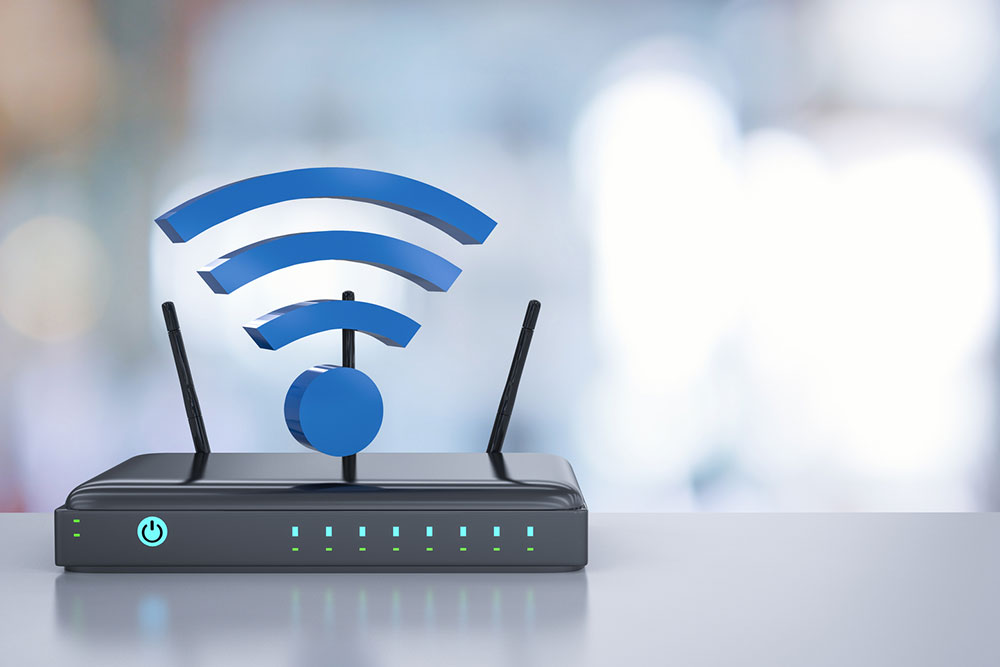4 Ways To Access Free Wi-Fi
In today’s digital era, staying connected online is crucial to accessing basic services like social media and communication platforms, professional applications, and more. Since the internet is necessary for most of these services to function, one must stay connected even when traveling. In such scenarios, one can simply connect to a free Wi-Fi network to save on data costs. There are various ways to get free Wi-Fi. Here are a few of them.

- Try popular public places
One of the best and easiest ways to find and connect to a free Wi-Fi network is by visiting a popular public spot like a public library, a cafe, a supermarket, or a restaurant. Places like these always have open Wi-Fi that users can access. Places such as public libraries even have dedicated workspaces where one can easily work on their laptop while accessing free Wi-Fi. Furthermore, public transport vehicles, such as buses and trains, offer passengers free Wi-Fi. This is extremely useful to those who might need internet access while on the move. It is pertinent to note that for some networks, the user may require log in credentials to access the Wi-Fi, which the establishment normally provides.
- Use apps that find free Wi-Fi nearby
If an individual cannot locate public places nearby that offer free Wi-Fi, there is a convenient solution. Many apps now provide users with a feature like a Wi-Fi map, letting them know which public places near them have open and free Wi-Fi hotspots. Users can then visit these places and access the free Wi-Fi networks. Additionally, several apps allow users to automatically connect to open Wi-Fi networks near them.
- Use a smartphone’s hotspot feature
If one carries multiple devices while traveling, with at least one device having a stable internet connection, it eliminates the need to search for public Wi-Fi hotspots. One can easily turn that device with internet access into a portable Wi-Fi hotspot. To do this, one must go to the phone’s settings and look for the hotspot option. On Android devices, this option is labeled as a “Portable Wi-Fi hotspot,” and on iOS devices, it is called a “Personal hotspot.” Once this feature is turned on, that device will become a Wi-Fi hotspot. Next, the user can look for this connection on their other devices among the list of available Wi-Fi networks. This way, multiple devices will be able to access the internet, eliminating the need to spend extra money.
- Get a portable router
A portable router is just like a normal router that one uses at home, except it does not require cables. Instead, these routers have a slot for SIM cards. So, one would need a SIM card with an active data plan inserted into the router. Some expenses are involved, but in the big picture, it would allow users to save big in the long run. This is because, with just one SIM card with a data plan, one can get internet access on several devices. Plus, given the portability of the router, one can easily carry it around with them and not worry about finding a place with open Wi-Fi networks.
Reasons to be careful when using open Wi-Fi networks
While open and public Wi-Fi networks bring the element of convenience, they also pose certain risks. Here are two reasons users must exercise caution when using such Wi-Fi networks.
- It could be a honeypot trap
One must be very careful when accessing open Wi-Fi networks that are not in a public place (like a cafe or library). There is a high chance of these networks being honeypot traps. This means that hackers could have set up these networks to lure users into connecting to them. Once connected, these malicious entities can steal personal data or install malware on the connected devices. To avoid this risk, users must verify the authenticity of the Wi-Fi network by either confirming its source with the establishment’s staff providing it or by using a popular VPN service.
- Sensitive information could be at risk
Even open Wi-Fi networks in public places could prove unsafe because hackers may be connected to the same networks. If so, such entities can easily attack devices connected to the network, intercept their online traffic, and steal sensitive information. This is why experts always advise avoiding making online payments or accessing sensitive information when connected to a public Wi-Fi network.
However, if one does need to access open Wi-Fi networks, there is something they can do to keep their devices and their data safe – by using a VPN connection. A VPN connection creates a layer of encryption to safeguard the user’s device from cyber threats. It also hides the user’s IP address and allows them to change their virtual location. This makes it nearly impossible for hackers to find that device and steal data.















